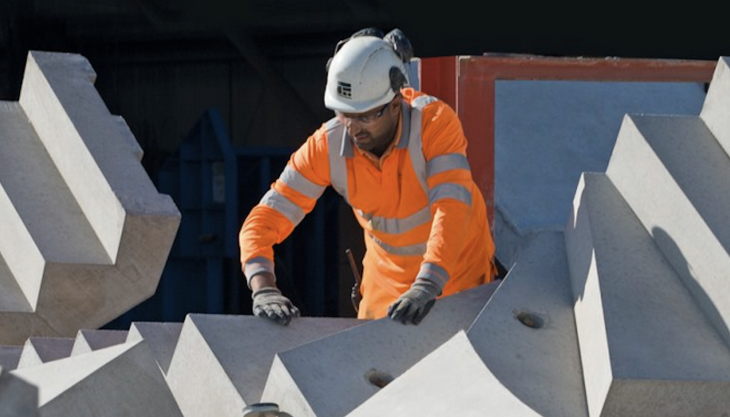Forterra collaborate in decarbonization project

UK team in Innovate UK-funded pilot project to decarbonize precast concrete in construction
WORKING as part of a collaborative team led by design-for-manufacture experts Akerlof alongside superstructure and façade construction specialists PCE, supported by engineers Curtins and sustainability consultants Accelar, concrete product manufacturers Forterra have helped to research and develop processes that significantly reduce the carbon emissions of precast concrete.
Funded by Innovate UK and supported by the Ministry of Justice (MoJ) as part of its future capital programmes for prisons, the pilot project is aligned with the UK Government’s strategic commitment to developing low-carbon infrastructure, decarbonizing the economy and securing better outcomes for the environment.
The Decarbonising Precast Concrete (DPC) project builds on the learning from recent research-based studies on ways to both reduce the amount of concrete used and apply lower-carbon-concrete mix types, crucially applied against a real-life project.
Through collaboration, the integrated team has addressed gaps along a typically fragmented value chain, to enable iterative testing, robust data capture and detailed analysis at each stage in engineering an optimized system.
Benchmarked against the performance of the MoJ’s existing delivery methods, the project outcomes are intended to be transferable to other sectors and development types, including student and rental housing, and major health and education infrastructure.
Whilst addressing material make-up to reduce manufacturing and embodied emissions is critical to decarbonizing, the pathway to net zero will rely upon a holistic view, with intelligent design that minimizes material use without affecting a structure’s integrity, as well as an understanding of a product’s transport and installation emissions.
The DPC project is, therefore, made up of three stages:
- Design Solution Optimization – minimizing material use at the source
- Material Development and Testing – incorporating use of novel cement and/or clinker substitution technologies and admixtures
- Production and Logistics Review – identifying opportunities for improvement in carbon emissions.
Forterra chief executive officer Stephen Harrison said: ‘This is a UK team, backed by UK innovation money, trialling a way to help UK construction lower its carbon emissions – a vital focus to keep our climate goals within reach as recovery measures stimulate the sector to increase building.’
Jonny Voon, head of the Sustainable Innovation Fund at Innovate UK, added: ‘Decarbonization of concrete manufacturing is fundamental to helping the UK Government achieve its Net Zero ambition of slashing emissions by 78% by 2035. Innovate UK are proud to support the project and an exciting consortium with their world-leading efforts.’
The pilot project’s findings and recommended future methodology, which are expected to be released this month, will be shared with the sector to allow it to consider a more holistically sustainable approach as it ramps up delivery of new buildings and infrastructure post-pandemic.









